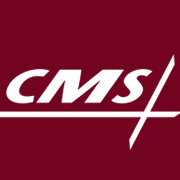CMS Selects 2 Orgs to Provide MACRA Implementation Support
Two healthcare organizations will join the Transforming Clinical Practice Initiative to help support clinicians with MACRA implementation.

- CMS will award up to $5 million to the Virginia Cardiac Service Quality Initiative and the American Psychological Association to provide primary and specialist care providers with MACRA implementation support.

The two organizations have joined the second round of the Support and Alignment Networks under the Transforming Clinical Practice Initiative. The networks are a new component of the initiative that aim to prepare clinicians for MACRA’s proposed Quality Payment Program and promote widespread adoption of alternative payment models.
The Transforming Clinical Practice Initiative was established to help providers implement large-scale care transformations through a collaborative peer-based learning program. CMS expects the initiative to support over 140,000 clinician practices over the next four years in sharing and creating quality improvement strategies.
CMS developed two channels for support under the initiative: practice transformation networks and support and alignment networks. Practice transformation networks currently include 29 healthcare organizations that coach, mentor, and help clinicians develop core competencies for practice transformation.
Support and Alignment Networks, on the other hand, provide clinicians with a system for workforce development for practice transformation projects. The networks use existing and developing tools, such as continuing medical education, certification maintenance, and core competency development, to help clinicians sustain practice changes. Ten national and regional professional associations are currently participating in these networks.
The most recent awardees are part of a new type of support and alignment network dedicated to promoting the widespread adoption of alternative payment models at low costs to clinicians. CMS developed the second round in June.
Both Virginia Cardiac Service Quality Initiative and the American Psychological Association are expected to use the award to “identify, enroll, and provide tailored technical assistance to advanced clinician practices in order to accelerate transformation and diffuse this learning throughout the TCPI [Transforming Clinical Practice Initiative].”
CMS also intends for the two organizations to facilitate practice transitions through five steps of care transformation, including establishing goals, using data to provide care, achieving progress, meeting benchmarks, and succeeding as a business under value-based care. By following the care transformation steps, clinicians should be able to successfully implement alternative payment models, the federal agency stated.
Additionally, CMS anticipates the organizations to add to the initiative’s new networks and provide personalized assistance to providers seeking the most appropriate alternative payment models.
“Critical to this approach is the capacity for these awardees to accurately identify large numbers of clinicians and practices in advanced states of readiness through sound data analytics capabilities, to enroll them into the Support and Alignment 2.0 network, to provide them with tailored technical assistance, and to help them determine the most suitable Alternative Payment Model options,” stated the announcement’s fact sheet. “Further, awardees will need to tailor direct technical assistance and support services to these clinicians’ and practices’ needs.”
As part of the initiative, the organizations agreed to the following:
• Administer quality improvement support to 5,000 or more clinicians
• Bolster support for the learning network in a multi-regional or national manner
• Partner with other experts to create evidence-based guidelines for clinical practices
• Develop effective measurement strategies through clinical registries and EHRs
• Commit to enhancing safety and patient engagement
The performance period for the recently-awarded organizations started in September and goes to September 2019. The period includes three 12-month budget cycles, but the funding is contingent on progress, program compliance, and availability of funds, CMS noted.
In a CMS blog post from June, Patrick Conway, CMS Acting Principal Deputy Administrator and Chief Medical Officer, explained that the MACRA-oriented Support and Alignment Networks could help eligible clinicians qualify for value-based incentives under the proposed Quality Payment Program.
The support networks would better equip Merit-Based Incentive Payment System (MIPS) participants to earn a favorable scoring standard and extra credit in the Clinical Practice Improvement Activities performance category, Conway noted. High-performing clinicians may qualify for a four percent Medicare payment adjustment in 2019 and receive additional bonuses.
Through the networks, eligible clinicians may also better prepare themselves for the Advanced Alternative Payment Model (APM) track, in which participants can earn a five percent value-based incentive payment in 2019.
“TCPI [Transforming Clinical Practice Initiative] helps more clinicians to improve quality, coordinate care, and spend dollars more wisely by providing peer-to-peer support to primary and specialty physicians, nurse practitioners, physician assistants, clinical pharmacists, and their practices,” wrote Conway. “For clinicians that elect to participate in MIPS, this support will help them be successful. Participating networks also disseminate best practices and provide technical assistance and coaching to practices that are moving towards participation in APMs.”
Providing additional support and education on MACRA may be key to provider success. According to a recent survey from the Physicians Foundation and Merritt Hawkins, only 20 percent of physicians reported that they are very or somewhat familiar with MACRA and the majority of respondents do not have a large portion of their payments linked to value-based care models.
Dig Deeper:
• What We Know About Value-Based Care Under MACRA, MIPS, APMs
• Understanding the Value-Based Reimbursement Model Landscape
